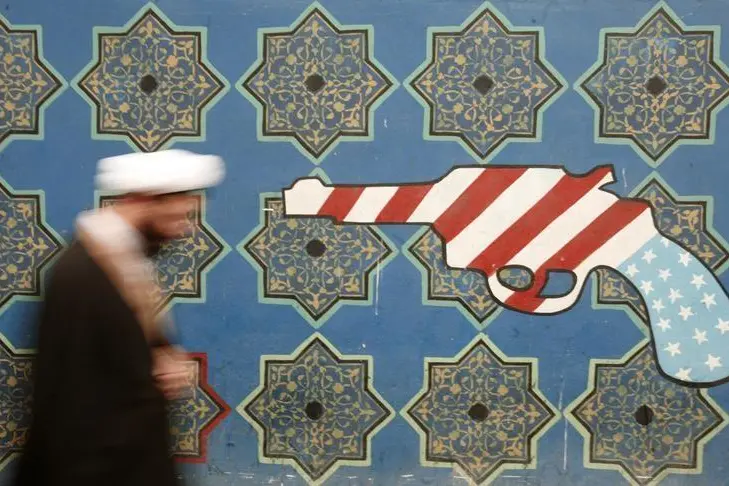PHOTO
(Corrects to show "Additional Protocol" does not just apply to Iran)
* Low-enriched uranium and heavy water stocks below limits
* Diplomat dismisses think-tank report about deal breaches
* Atomic deal opposed by Iran's hardliners and U.S. sceptics
By Shadia Nasralla
VIENNA, Sept 8 (Reuters) - Iran has kept to a nuclear deal it agreed with six world powers last year limiting its stockpiles of substances that could be used to make atomic weapons, a report by the U.N. nuclear agency found.
The confidential report by the International Atomic Energy Agency (IAEA) seen by Reuters did not point to any violations in Tehran's observance of the deal which was opposed by hardliners inside Iran and by sceptics in the West.
"Throughout the reporting period, Iran had no more than 130 metric tonnes of heavy water ... Iran's total enriched uranium (up to 3.67 percent purity) stockpile did not exceed 300 kg," the report said, citing the nuclear deal's limits on the two substances.
Earlier this month, a U.S. think-tank said Iran had been secretly allowed to overstep certain thresholds in order to get the deal through on time, but a diplomat said no limits had been exceeded apart from one incident which the agency reported in February.
The Institute for Science and International Security think-tank, headed by a former IAEA inspector, said one of the secret concessions exempted unknown quantities of low-enriched uranium contained in liquid, solid and sludge wastes.
It also said Iran had been allowed to keep operating 19 radiation containment chambers more than set out in the deal. These so-called "hot cells" are used for handling radioactive material but can be "misused for secret, mostly small-scale plutonium separation efforts," it said.
The diplomat in Vienna said any hot-cell activity that could be used to breach limits would be reported by the IAEA, which it had not done.
The White House has denied there were any secret deals and says the agreement, also negotiated by Russia, China, Britain, France and Germany, does ensure Iran cannot develop nuclear weapons. In exchange, international sanctions on Iran were lifted.
Iran has also given fresh documents to the IAEA, it said, to move towards further normalisation of its status under the so-called Additional Protocol, the agency's monitoring procedure which all member states are supposed to adhere to.
Under last year's nuclear deal, Iran is allowed to conduct certain atomic research and development activities beyond uranium enrichment with its elderly IR-1 centrifuges. Thursday's report mentioned Iran has resumed making rotor tubes for advanced models.
The diplomat said these rotor tubes were for centrifuges of the IR-4, 6 and 8 types, adding this was not in conflict with the nuclear deal.
(Editing by Robin Pomeroy) ((Shadia.Nasralla@thomsonreuters.com; +43 153 11 2256; +43 664 390 6505;))
* Low-enriched uranium and heavy water stocks below limits
* Diplomat dismisses think-tank report about deal breaches
* Atomic deal opposed by Iran's hardliners and U.S. sceptics
By Shadia Nasralla
VIENNA, Sept 8 (Reuters) - Iran has kept to a nuclear deal it agreed with six world powers last year limiting its stockpiles of substances that could be used to make atomic weapons, a report by the U.N. nuclear agency found.
The confidential report by the International Atomic Energy Agency (IAEA) seen by Reuters did not point to any violations in Tehran's observance of the deal which was opposed by hardliners inside Iran and by sceptics in the West.
"Throughout the reporting period, Iran had no more than 130 metric tonnes of heavy water ... Iran's total enriched uranium (up to 3.67 percent purity) stockpile did not exceed 300 kg," the report said, citing the nuclear deal's limits on the two substances.
Earlier this month, a U.S. think-tank said Iran had been secretly allowed to overstep certain thresholds in order to get the deal through on time, but a diplomat said no limits had been exceeded apart from one incident which the agency reported in February.
The Institute for Science and International Security think-tank, headed by a former IAEA inspector, said one of the secret concessions exempted unknown quantities of low-enriched uranium contained in liquid, solid and sludge wastes.
It also said Iran had been allowed to keep operating 19 radiation containment chambers more than set out in the deal. These so-called "hot cells" are used for handling radioactive material but can be "misused for secret, mostly small-scale plutonium separation efforts," it said.
The diplomat in Vienna said any hot-cell activity that could be used to breach limits would be reported by the IAEA, which it had not done.
The White House has denied there were any secret deals and says the agreement, also negotiated by Russia, China, Britain, France and Germany, does ensure Iran cannot develop nuclear weapons. In exchange, international sanctions on Iran were lifted.
Iran has also given fresh documents to the IAEA, it said, to move towards further normalisation of its status under the so-called Additional Protocol, the agency's monitoring procedure which all member states are supposed to adhere to.
Under last year's nuclear deal, Iran is allowed to conduct certain atomic research and development activities beyond uranium enrichment with its elderly IR-1 centrifuges. Thursday's report mentioned Iran has resumed making rotor tubes for advanced models.
The diplomat said these rotor tubes were for centrifuges of the IR-4, 6 and 8 types, adding this was not in conflict with the nuclear deal.
(Editing by Robin Pomeroy) ((Shadia.Nasralla@thomsonreuters.com; +43 153 11 2256; +43 664 390 6505;))





















